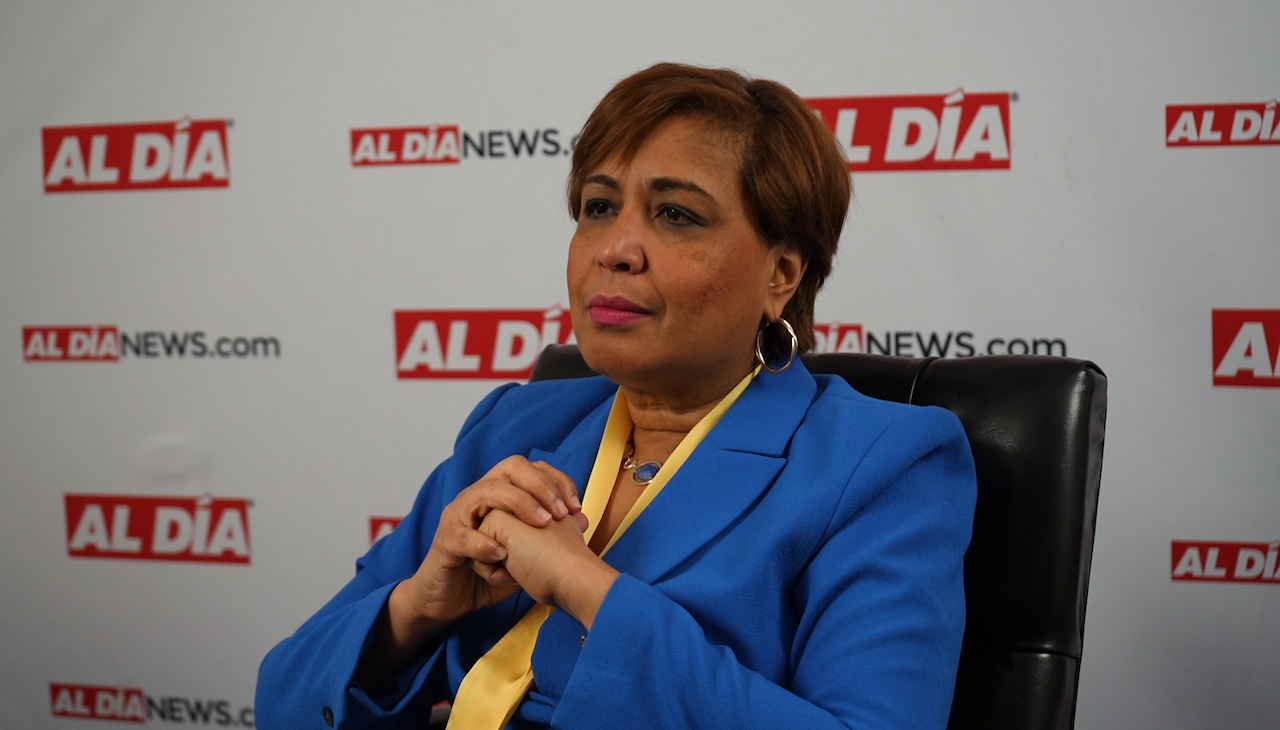
Maria Quiñones Sánchez was always ready to lead Philadelphia
Quiñones Sánchez says she became “very intentional” about building consensus, even if it took years, as a member of City Council.
Maria Quiñones Sánchez is not quotable by any stretch of the imagination.
With few memorable campaign slogans, Quiñones Sánchez answers questions by citing data and previous legislation she’s passed. In her vast arsenal of experience, she has memorized facts and figures for almost every issue she’s taken up, whether in her nonprofit work or on Philly City Council, which has a lasting legacy of 400 bills.
Interviewers will be hard-pressed to elicit a viral response despite the fact that Quiñones Sánchez, 54, spent the greater part of her upbringing working to better the lives of those surrounding her well before her city council days.
“I didn't understand that I was poor,” Quiñones Sánchez recalled when asked about her childhood.
At six months old, Quiñones Sánchez’s mom uprooted the lives of her and her kids in Puerto Rico to follow her husband, who sought work in Philadelphia.
“She was tired of being left alone in Puerto Rico,” she recounted in a recent conversation with AL DÍA.
All she knew growing up was public housing and displacement, moving from one property to another — from Ludlow to Franklin, Indiana, to Fairhill — until the family settled in Hunting Park and purchased a home.
Her mom, Quiñones Sánchez said, “tried to give us what she understood to be a normal life.”
A normal life constituted calls to PECO at seven years old to help the family resolve disputes, translating English to Spanish, and the other way around. A normal life was standing in line for food vouchers to help her mom prove income eligibility.
It didn’t stop her from having ambition; frankly, little ever could.
The early days
Seventeen was an interesting age for her. She worked for her intrepid neighborhood paper, Community Focus, and followed the likes of Marian Tasco in her campaigning days as one of the first bilingual reporters in the community.
She was served legal papers, not by Tasco, which her then editor called a “bogus lawsuit, but it really motivated me.”
Following those dreams to become a broadcast journalist, she applied — and was accepted — to enter Bryn Mawr College, a liberal arts university for women seeking Ivy League alternatives in higher education since the more traditional institutions hadn’t caught up to the times.
Temple offered her a better scholarship, so she got her degree there. But after taking a class with Partridge Family radio star Danny Bonaduce, she was convinced it wasn’t the career for her.
The alternative? Saving ASPIRA, an education nonprofit that later founded a charter school, from financial ruin at 27.
A leadership moment
The company was in bad shape, and deeply. When Quiñones Sánchez joined as president, the organization had half a million dollars in the budget with a competing half a million dollars in structural deficit.
There were also tax liability issues, Quiñones Sánchez explained, because whatever the company was withholding from employees, it wasn’t paying its portion, “so it was even more serious.”
The anecdote was dry. Still, Quiñones Sánchez was adamant about setting the record straight.
“The numbers piece is important to me,” she said.
She met with the City Solicitor to negotiate $175,000 — “I think the debt was,” remembered Quiñones-Sánchez — and managed to only pay the principal debt, whereas most of the obligation was in interest and penalties.
Then, she negotiated with Pennsylvania State Rep. Dwight Evans, then the Chair of Appropriations in the PA House, to obtain a similar deal and got it.
But the biggest challenge, she remembered, was haggling over the biggest accumulated debt with the federal government. A woman, “bless her heart,” said Quiñones Sánchez, that somebody “had to pay” because the organization had gotten one too many passes.
Quiñones Sánchez did what she does best. She strategized, hired a former IRS agent to consult on the debt, and designed a creative plan to address the underbelly of debts from the feds.
She borrowed money from ASPIRA’s national chapter, paid principles on the debts, and appealed the payment “because the federal government should have never let us get into that kind of problem” and got those funds back.
To protect the employees from losing income in the meantime, she laid them off for six months to collect unemployment and shave off the 15% of the employee compensation that absorbed the company’s budget.
“As a product of the organization, I was like, it's not closing under me.”
“I told my board, ‘We either grow or we close. We're a leadership organization. This is our leadership moment.’”
Indeed, not only did it keep its doors open, it went on to scale into the first bilingual charter network, and it only took compressing seven years’-worth of audits into two and moving ASPIRA’s financial director across the street from her.
Politics
Quiñones Sánchez’a first try at politics was in 1999, and it was “a humbling experience to lose,” she jested.
It’s not that she didn’t do everything right. She canvassed, obtained endorsements, and fundraised, but “we didn't have a pool of rich people that we knew that we could raise money from. So I was not a good candidate in that regard.”
The party had seemingly been uninterested in another Latino.
“We had an at-large Latino council person, so the party said, ‘you don't deserve two people. You guys are not big enough.’”
Since there was no mayoral primary in 2003, Quiñones Sánchez held off on running again and instead joined the Puerto Rico Federal Affairs Administration (PRFAA) and worked on Latino voter registration campaigns around the commonwealth.
That work, she said, landed her in court when they sued over the inclusion of Spanish-language ballots across counties, but ultimately, Governor Ed Rendell decided to settle, avoiding a drawn-out legal squabble for ballot accessibility.
In 2008, she ran again.
Making a splash
As a Tasco alum, Quiñones Sánchez knew she wanted to be a district council person, “being able to really create a vision for the district,” she said. “I needed to be in a place where I was going to build stuff. It wasn't just about legislative achievements. It was really about how we can transform the infrastructure of our city.”
She was close with Councilmembers Curtis Jones Jr. and Bill Green because they had connected during the primaries and in council. “We spent six months learning together,” but more importantly, she said, “we wanted to go to council and make a splash.”
They went after the controversial Deferred Retirement Option Plan, or DROP, which enabled elected officials to collect pension benefits through an interest-bearing account by announcing an intention to retire but resume collecting city paychecks afterward.
“I got cursed out. Marian Tasco was like, ‘What!?’” recalled Quiñones Sánchez. “So we made a splash. And it was very bumpy.”
Still, she was proud of the result and learned through that experience to negotiate with opposing colleagues. “I believe we changed how council works collectively because we didn't always have the same votes.”
“It was a matter of understanding who they felt was their constituency. And knowing what they cared about, and most of the time, they cared about the same thing I cared about. Maybe they looked at it differently.”
The reputation vs. the person
Quiñones Sánchez is known for her sour relationship with the Democratic establishment and, particularly, for her battles with former State Representative Ángel Cruz, who served District 180 for a whopping 22 years — whom she defeated in 2019 to win her third reelection to City Council.
In her district, the 7th councilmanic district, she often stayed away from its ward leaders, pursuing a record that was unique and belonging to her, even at the cost of defying the party legacy.
Within council halls, the story strays from the rebellious.
RELATED CONTENT
She doesn’t see it as all combative. Instead, disagreement was necessary as a means of “respecting that they're an independently elected body, understanding who they feel their constituents are, and listening to what they care about.
“When three council people go to jail in your district, there's something very ingrained in there, and one person will not change that overnight. I always want to make that distinction…that the party doesn't like you, the establishment, because I didn't get elected by them, I got elected by people to disrupt that.”
“I became very intentional in that process,” said Quiñones-Sánchez
Developing an acumen for compromising, she was able to introduce bills like business tax reform and the Land Bank, but it wasn’t easy. “It took me seven years to get it done,” she noted about the latter, despite talking about vacant lots in 1985, according to her.
“But you have to then say, who was my biggest opposition? And how do I begin to work through this process so we can get to a consensus?” she said.
Even at her best, Quiñones Sánchez recognized that compromise was a necessary step toward getting anything done, especially because she had seen how inefficient government could harm the electorate.
Kensington
When Quiñones Sánchez talks about public safety in District 7, it’s because she has seen the violence firsthand.
“I think this is one of the areas where the candidates are following the polls, not what they know and what they've lived,” she said, now a 2023 Philly Mayoral candidate.
And if it just so happens that a candidate is talking about public safety, they are likely to name Kensington, a neighborhood whose residents experience higher percentages of violence per capita in concentrated hotspots.
That neighborhood, which brims with predominantly Spanish-speaking residents, also grapples with an open-air drug market that has fueled the opioid epidemic.
“There are so many different policies that lead to the creation of Kensington. This is a citywide problem. It's a national problem,” said Quiñones Sánchez.
She ascribes the crisis to a failed containment strategy, and it's a message she has driven over many years, especially on the campaign trail, as forum moderators and voters question the inception of the crisis.
Asked about the containment, Quiñones Sánchez remembered the first alarm bells go off when a number of pharmacies open, 12 to be specific, from Germantown Avenue to Front Street, on Lehigh Avenue.
“I went to the [Drug Enforcement Administration], and they did an analysis of all the pharmacies, and we have the top-selling pharmacies of opioids of the city in district seven… We closed them down. I think there are three left.”
Around 2014, she recalled, Quiñones Sánchez approached Community Behavioral Health, a nonprofit organization that offers accessible and expanded mental health services, to alert them of what she believed to be a growing trend.
“CBH would not close them…the federal government did. Think about that.”
After working with the federal government, “that was the first inkling to me that this was going to be out of control and that our city wasn't really ready to respond to it.”
On Public Safety
“When I'm downtown, or when I'm in neighborhoods that never felt the public safety and security, I take advantage of the opportunity to say, ‘You don't feel safe, but we have residents that have never been safe,’” she said when asked about her approach to talking about public safety on the campaign trail.
Quiñones Sánchez’s idea of building safe neighborhoods, she said, begins with lighting, clean streets, and the installation of security cameras, “and then people begin to come out because this neighborhood looks safe. And then people make it feel safe,” she said.
Still, she acknowledged that infrastructure alone is not enough. “We have to end policies that separate families, we have to wrap ourselves around these young folks who are killing each other because they feel hopeless because of what we haven't done right. We failed them already.”
“We've disrupted their lives. Poverty has disrupted their lives, and the system has been hostile to them.”
“We're gonna go to those 100 top corners where we know the next crime is going to happen — where the police know the next crime is going to happen — and we're gonna put a camera, we're gonna light it up, we're gonna clean it up. And we’re going to tell those neighborhoods, ‘We see you, and we're here to protect you and make you safe,’” she said.

This content is a part of Every Voice, Every Vote, a collaborative project managed by The Lenfest Institute for Journalism. Lead support is provided by the William Penn Foundation with additional funding from The Lenfest Institute, Peter and Judy Leone, the John S. and James L. Knight Foundation, Harriet and Larry Weiss, and the Wyncote Foundation, among others. To learn more about the project and view a full list of supporters, visit www.every voice-every vote.org. Editorial content is created independently of the project’s donors.


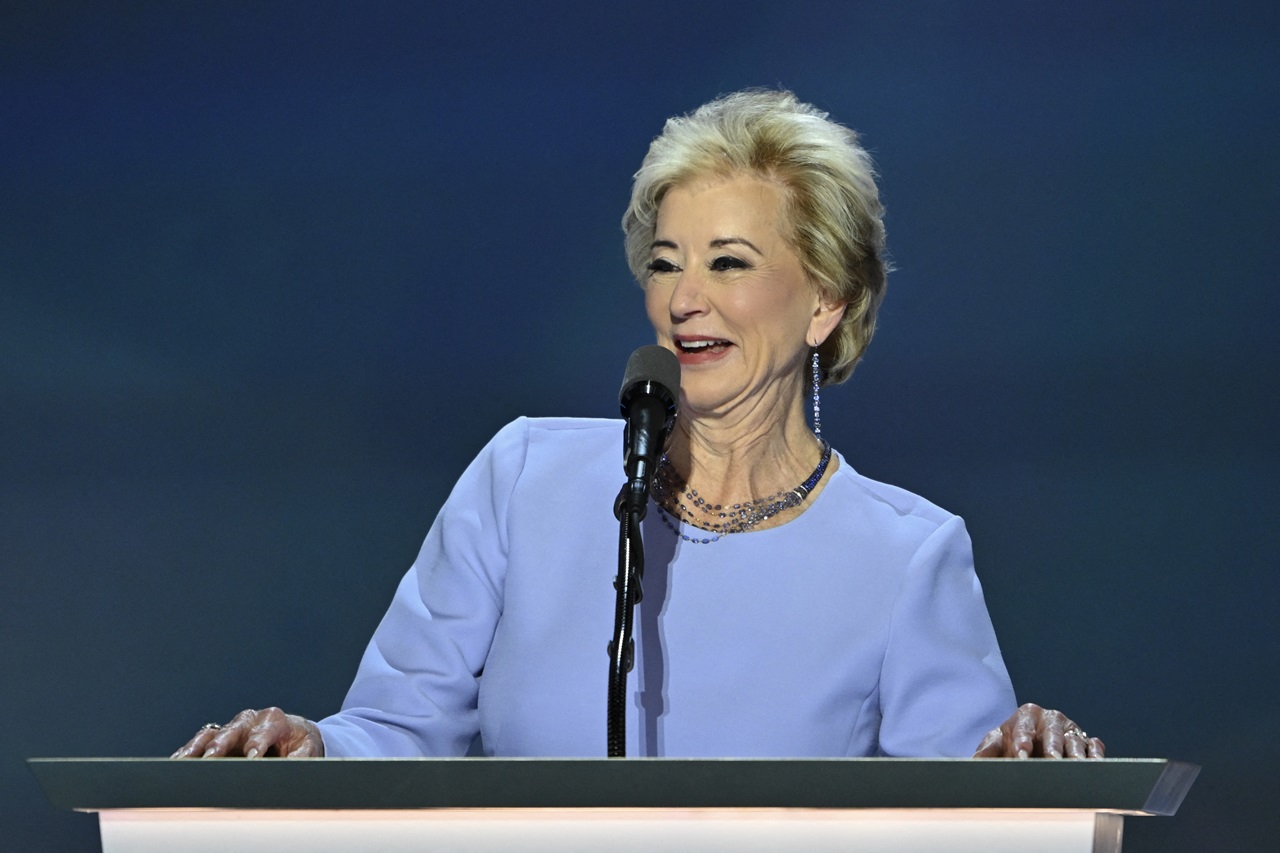

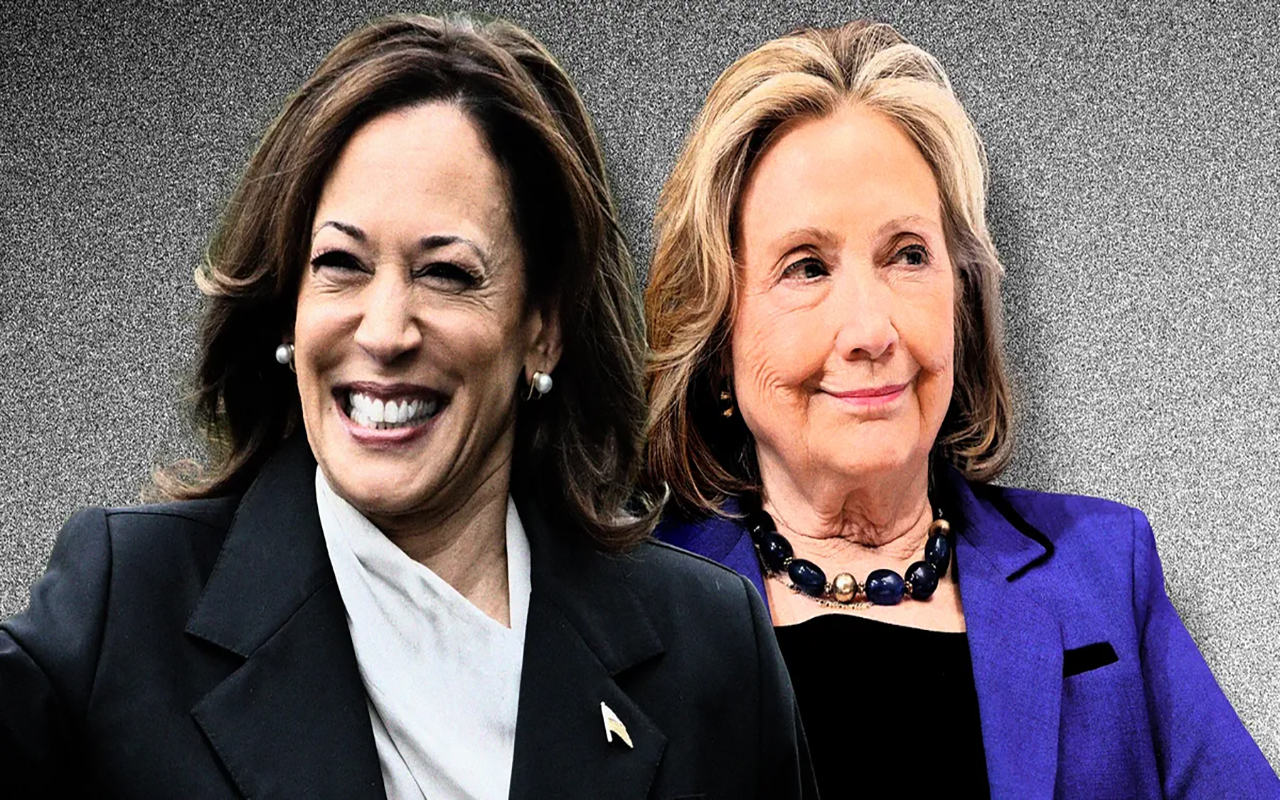
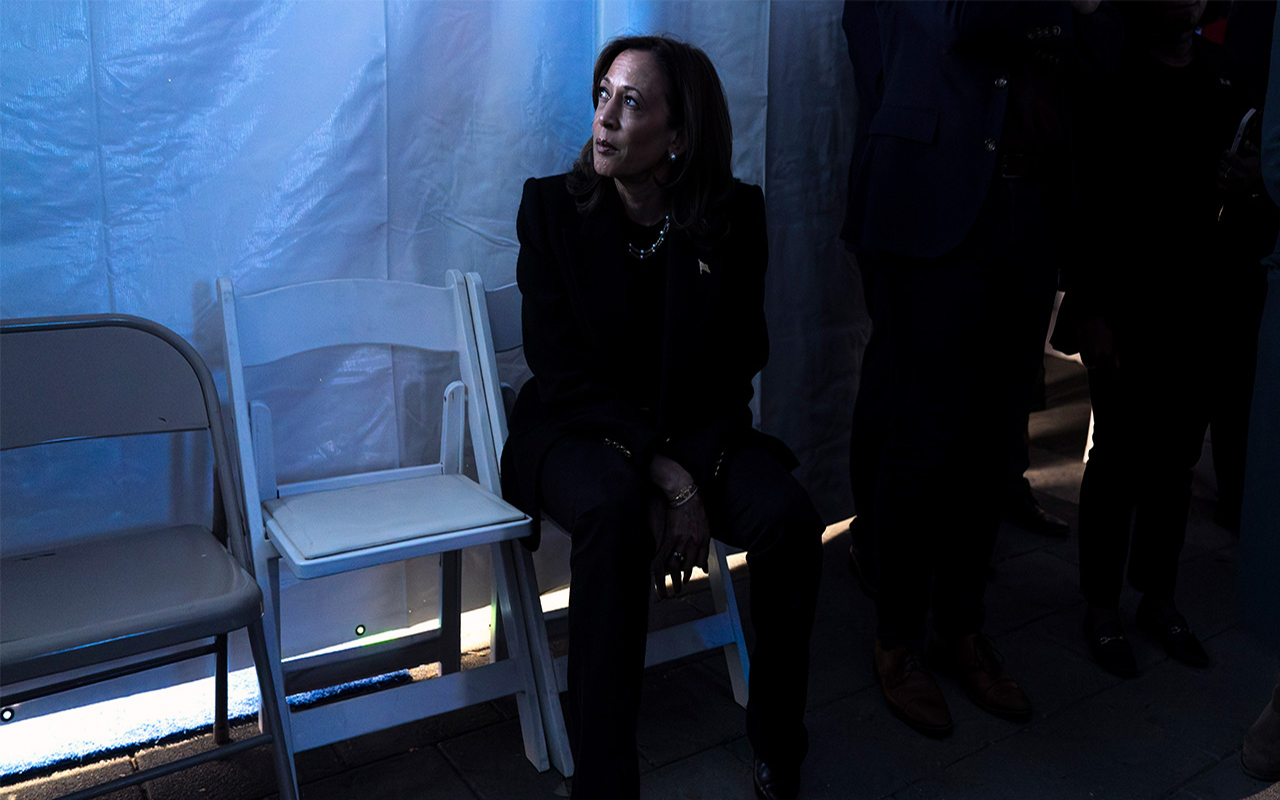
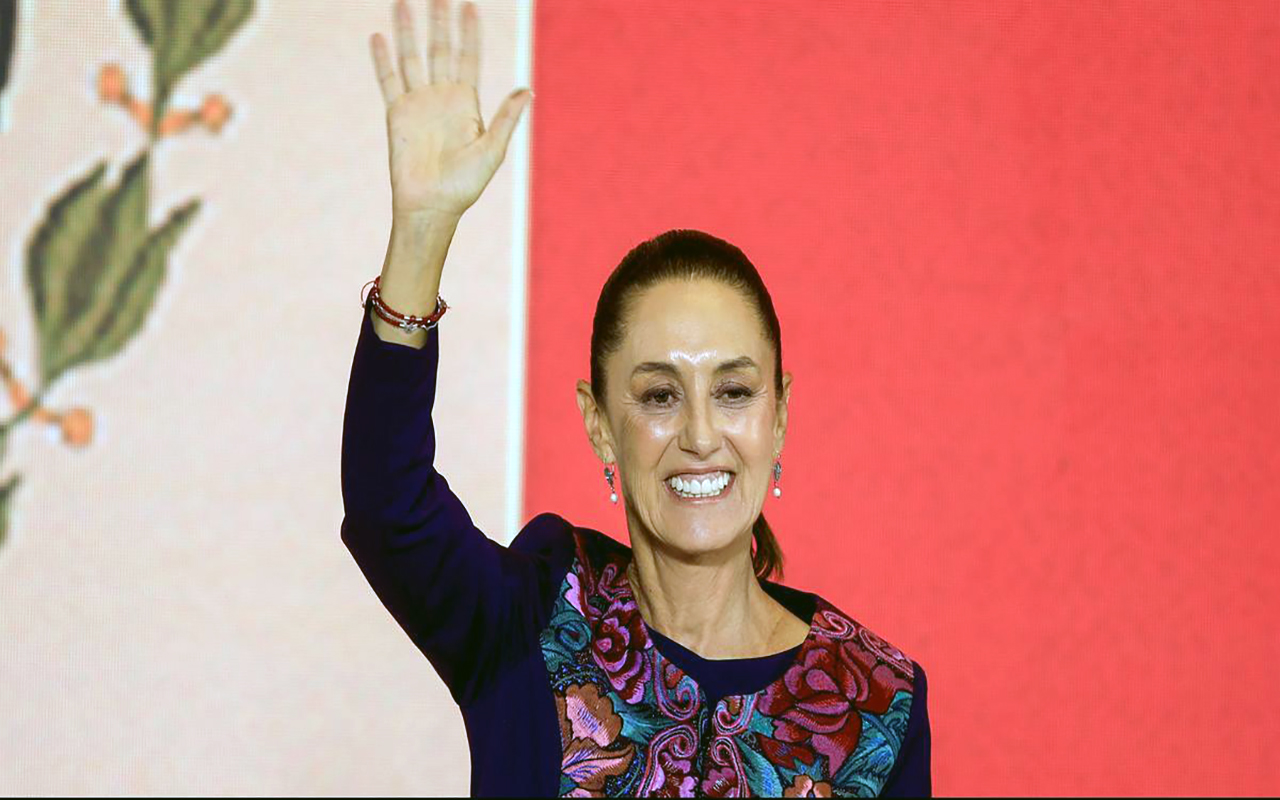




LEAVE A COMMENT:
Join the discussion! Leave a comment.